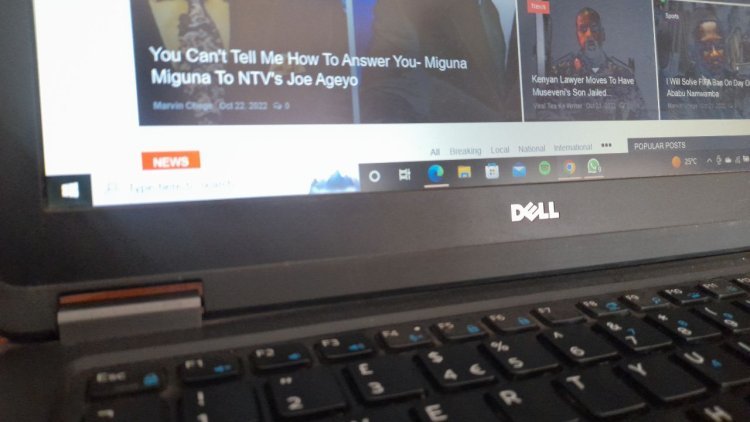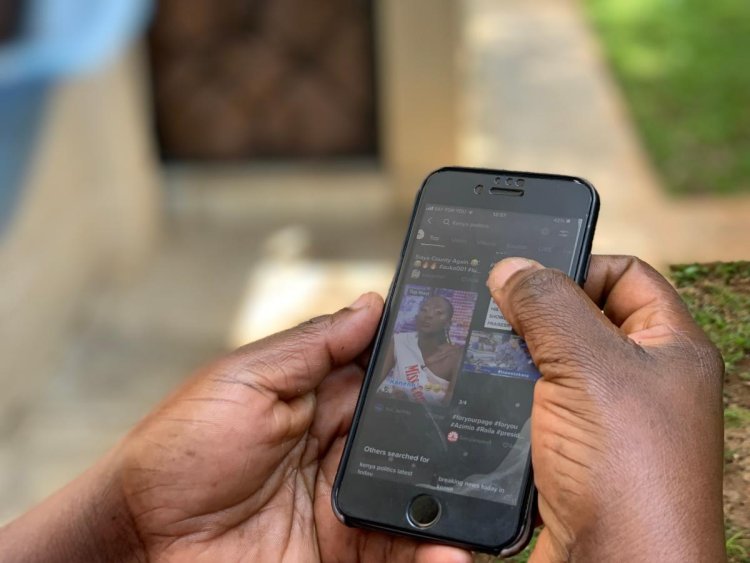OORO: Story Of Kenya's First News Website & Tough Times For Digital Media
I have written before about how technological disruption in the 2010s made news blogs and websites, in retrospect, the ultimate fantasy of the digital sphere, leaving traditional media organizations clutching for the last straw.

Niaje, a pioneer digital media website in Kenya was founded by David Mugo in 2006. It published content in the entertainment, lifestyle and sports bits.
Mugo had built Niaje into a traffic juggernaut by being among the first to see the rising social web. The site made a buzz in 2013 as the main photography partner in almost all major entertainment events in Nairobi, including events sponsored by mainstream media like Nation Media Group, capturing moments of partygoers and publishing them on their social media pages.
In 2013, Niaje scooped two gongs at the Bloggers Association of Kenya (BAKE) Awards—The Best Entertainment Blog and The Overall Best Blog in 2013.
In 2014, Niaje won the Webfluential African Blog of the Year Award. Niaje also won the 2017 Entertainment Blog of the Year award at the BAKE Awards 2017.

A logo of the Niaje news website. /MDUNDO AFRICA
Until its closure, Niaje was the internet’s newsroom. The viral-baiting, social-media-age-defining news blog, pioneered a business model—and a journalistic ethos—that embodied the digital media dream.
The potential math of converting clicks into cash that would fund hard-hitting investigative journalism felt like the ultimate proof of concept for content-making in that fertile, social media-centric era. It was an opportunity to work in a kind of social compact that transcended the terms of conventional employment.
Tough Times For Digital Media Houses Right Now
“The darling digital upstarts of the 2010s invested heavily in journalism, racking up scoops and awards, but unlike The New York Times, weren’t built to weather industry upheaval,” Jill Abramson, former executive editor of The New York Times, writes in her opinion piece published by Vanity Fair magazine.
This was in the wake of breaking news that BuzzFeed News – a plucky, dossier-publishing American internet media and news company – that shaped public conversion on everything from celebrity gossip-gathering and scandal-mongering to investigative pieces, would soon cease publication.
According to Jonah Peretti, co-founder and CEO of the Pulitzer Prize–winning online news site, the decision to fold was informed by “a fading SPAC market that yielded less capital,” a “decelerating digital advertising market,” and “ongoing audience and platform shifts,” among other reasons. The announcement coincided with broader workforce reductions, involving a 15 per cent cut in jobs “across nearly every division.”
I have written before about how technological disruption in the 2010s made news blogs and websites, in retrospect, the ultimate fantasy of the digital sphere, leaving traditional media organizations clutching for the last straw.
Bloggers, Digital Journalists Taking Over
Most bloggers and vloggers, by dint of their professionalized mastery of virality, have become online brands unto themselves—at least among the media-obsessed set. Because of their role as canaries in the digital media coal mine; the abrupt shuttering of major internet newsrooms like BuzzFeed News and Vice, is likely the clearest-signalled end to the most decorated era of the internet thus far.
While a handful of bloggers and digital media practitioners like Samwel Majani of Ghafla, Marvin Chege (founder & editor-in-chief, Viral Tea), Mario Armando of Perez Hilton, Sandra Rose, Millard Ayo, Linda Ikeji of Linda Ikeji’s blog and Eve Mungai have successfully expanded from quirky offshoots of sub-domain sites to establishing sprawling digital media enterprises with incredible award-winning news features that challenged the dominance of mainstay media institutions, others found themselves lost along the way, leading to either sell-offs, layoffs or complete closures due to an inability to figure out how to turn their platforms into sustainable businesses.
Digital Media Woes In Kenya
Media personality-cum-politican, Jalang’o, reportedly fired his staff whom he entrusted to run his nationally-acclaimed YouTube channel, Jalang’o TV, after he embarked on a political journey.
The former radio presenter later introduced a new set of employees and revealed that the former presenters ended up partying instead of working hard, despite the platform already having a reputable name.
"The boys started playing around yet the channel needed to generate money. The channel currently generates a mediocre income yet it used to make millions," he said.
Facebook, X & Other Social Media Platforms Dumping News Websites
As Facebook and other tech platforms evolved, they became like difficult landlords who would often withhold support.
They simply stopped distributing links to websites. Relying on advertising to sustain bloggers, vloggers and other content creators started seeming less workable as a solution over time.
This is a sheer depiction of betrayal that the realities of digital media have laid bare: For every blogger and vlogger who’s dedicated themselves to news and content creation of the place synonymous with the internet’s optimistic spirit of experimentation comes the realization that such experiments require a great degree of gambling with invested capital with minimal returns.
The folding of prominent digital news sites like BuzzFeed News, Vice, Niaje, and Hivisasa signals a vast shift in digital media that those of us who live inside it are feeling intensely right now, the end of one era and the beginning of another.

A person browsing the internet on his phone. /CONTEXT NEWS
Those of us lucky enough to be re-building or building from scratch in this new phase have to realize that the old way of thinking about news – based on text on the World Wide Web and distributed primarily on social media – is long gone.
But the demand to understand what’s happening in the world – who, when, where, why and how – is still high.
Ooro George is a Kenyan journalist, art critic, digital stories, and cross-cultural curator. You can reach him via LinkedIn here, through email: oorojoj@gmail.com and on Twitter @OoroGeorge






